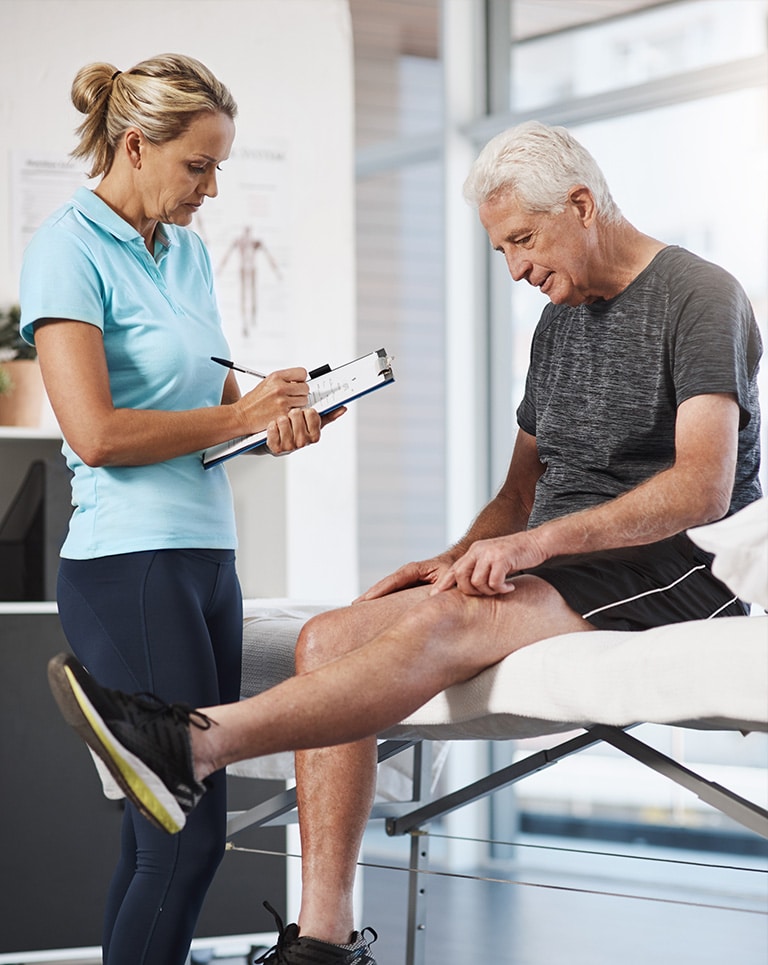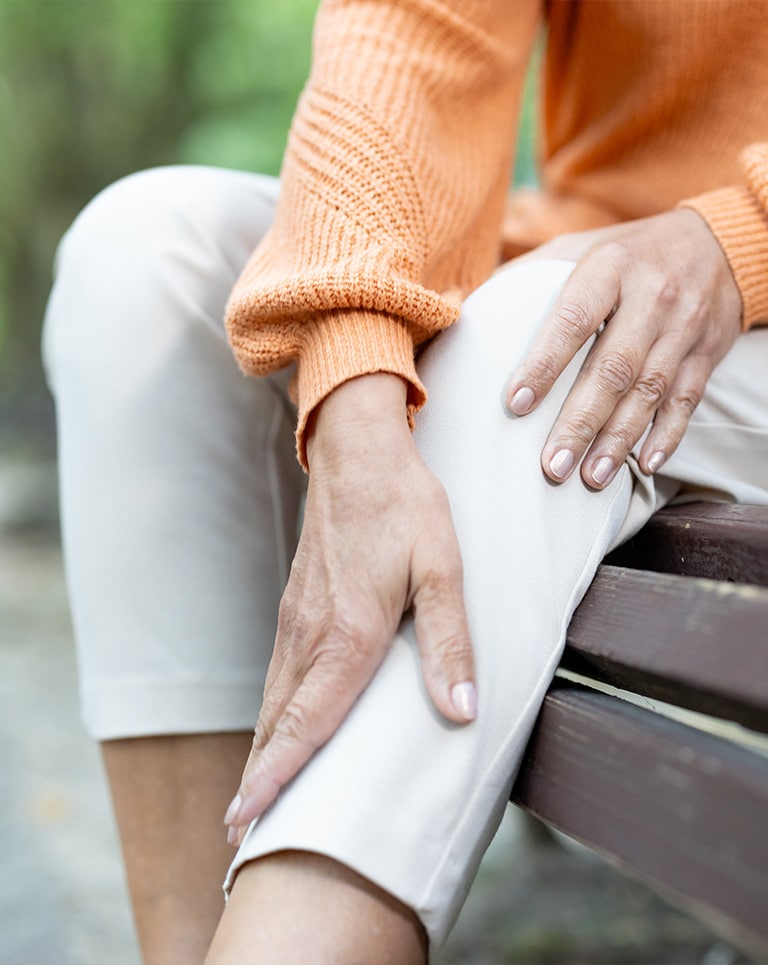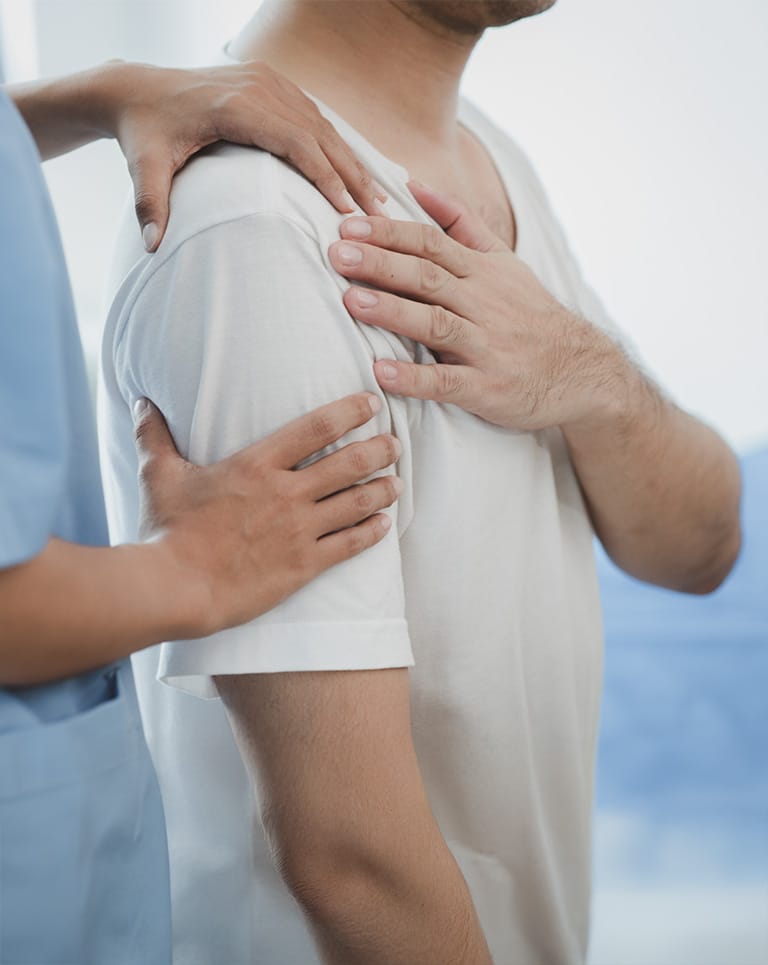
Endometriosis may be another long, meaningless medical term for some, but for others, it’s an all too familiar source of pain and discomfort.
In this blog, we’ll cover a few questions concerning endometriosis, including:
- What is endometriosis?
- What happens when a woman has endometriosis?
- Symptoms of endometriosis
- How do you know if you have endometriosis?
- What triggers endometriosis?
- Risk factors of endometriosis
- At what age does endometriosis start?
- How is endometriosis treated?
- What happens If endometriosis is left untreated?
- Complications from endometriosis
What is Endometriosis?
Endometriosis is a chronic condition where tissue cells lining the inside of the uterus grow outside of your uterus onto other organs and structures in the pelvic region.
John Hopkins reports that endometriosis affects an estimated 2 to 10 percent of American women between the ages of 25 and 40.
What Happens When a Woman has Endometriosis?

Endometriosis causes the uterus lining to grow outside of the uterus on other pelvic organs. This tissue thickens and bleeds, as typical endometrial tissue does during menstrual cycles. The misplaced tissue can cause intense pelvic pain, and women with chronic pelvic pain may experience heavy periods or infertility.
Endometriosis can impact the ovaries can cause endometriomas cysts to form. The cysts can irritate surrounding tissue and develop scar tissue and adhesions, making pelvic tissue and organs attach together.
Symptoms of Endometriosis
- Intense menstrual cramps
- Abnormal or heavy menstrual flow
- Pain during or after sex
- Pain during urination or bowel movements
- Infertility
- Diarrhea or constipation during the menstrual period
- Fatigue or low energy
How Do You Know If You Have Endometriosis?
If you notice one or more of the signs of endometriosis, schedule an appointment with your doctor for a pelvic exam and a proper diagnosis. These symptoms fall under other conditions, so seeking professional advice and not self-diagnosing endometriosis is vital.
Laparoscopy
A laparoscopy is the only way to receive a proper endometriosis diagnosis. A laparoscope (a thin, fibro-optic instrument) is inserted into a small cut near the naval made by the surgeon. The surgeon will use this instrument to search for any signs of potential endometriosis tissue existing outside of the uterus.
What Triggers Endometriosis?
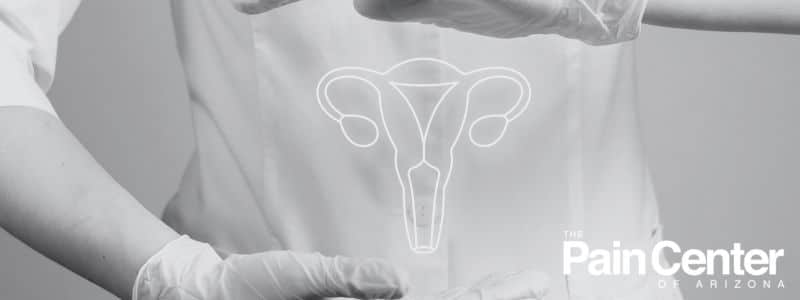
The exact cause of endometriosis is unknown, but there are some correlations between the disorder and possible causes.
One possible cause is that the tissue that normally lines the uterus passes through the fallopian tubes (Retrograde menstrual flow), attaching to organs in the pelvic region.
Another possible cause could be that endometrial cells are present at birth, growing and changing over a period of time and developing endometriosis.
Risk Factors of Endometriosis
The Mayo Clinic states several risk factors that can cause endometriosis to develop, including the following:
- Never giving birth
- Starting your period at an early age
- Starting menopause at an older age
- Short menstrual cycles (typically less than 27 days)
- Heavy blood flow during periods for more than seven days
- Having a hysterectomy or C-section
- An immune system disorder
- High levels of estrogen
- Low body mass index
- One or more female relatives with endometriosis
- Reproductive tract disorders
- Medical conditions that prevent the passage of blood from the body during menstrual periods
Remember that these risk factors do not guarantee that endometriosis will develop.
Always consult your doctor if you experience odd symptoms or pain to receive a proper diagnosis.
At What Age Does Endometriosis Start?
Endometriosis can affect women of any age but most commonly affects women during their reproductive years between the ages of 25 and 35. One in ten women of reproductive age has endometriosis, making it a common condition.
How is Endometriosis Treated?
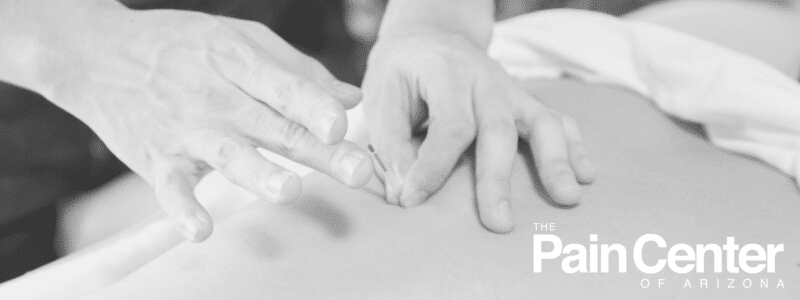
No known cure for endometriosis exists, but numerous medications, treatments, and lifestyle changes can manage the symptoms. Of the treatments available for endometriosis, severe cases often need laparoscopic surgery.
Other options to treat endometriosis include the following:
- Birth control pills
- Gonadotropin-releasing hormone GnRH agonists (hormone therapy)
- Nonsteroidal anti-inflammatory drugs (NSAIDs)
- Laparoscopy
- Hysterectomy
- Acupuncture
- Physical therapy
- Massage therapy
The treatment method chosen will vary case-by-case based on the severity of the condition, present symptoms, endometriosis pain levels, and potential side effects.
What Happens if Endometriosis is Left Untreated?
If left untreated, symptoms such as increased chronic pain may continue. The effects of endometriosis can become severe if left untreated, including the risk of infertility and ovarian cancer.
Complications from Endometriosis
Infertility
Impaired infertility is the main complication of endometriosis. Mayo Clinic states, “Approximately one-third to one-half of women with endometriosis have difficulty getting pregnant.” Because endometriosis damages the fallopian tube, this can prevent sperm from traveling through the tube and contacting the egg. Another way endometriosis can cause infertility is by harming either the sperm or the egg.
Ovarian Cancer
Ovarian cancer is in fifth place for cancer deaths among women, making it the highest death rate cancer of the female reproductive organs. Unlike infertility, the risk of cancer due to endometriosis is relatively low, but still a risk. Another type of cancer associated with endometriosis is adenocarcinoma, a cancer of the glandular tissue.


